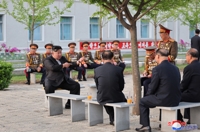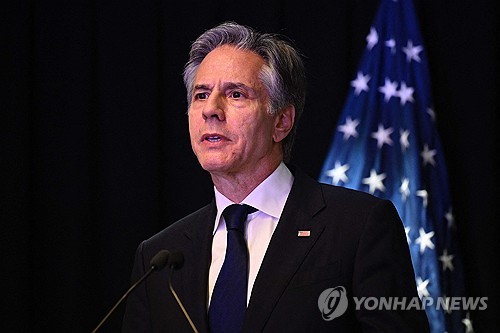Analysts see no immediate impact of Trump-Kim summit on S. Korean stocks
SEOUL, June 13 (Yonhap) -- The historic summit between U.S. President Donald Trump and North Korean leader Kim Jong-un is unlikely to have an immediate impact on the South Korean stock market as it would take time to reduce risks from the North's nuclear weapons program, analysts said Wednesday.
If there is tangible progress on dismantling North Korea's nuclear program in the medium and long-term, however, the benchmark KOSPI index could reach 2,800 points or more later this year, according to a survey of seven stock analysts.
After about five hours of meetings in Singapore on Tuesday, Trump and Kim signed a joint statement committing to the "complete denuclearization of the Korean Peninsula." But the statement fell short of mentioning details of how the North's denuclearization would be achieved.
The analysts said the sparse statement has been in line with market expectations.
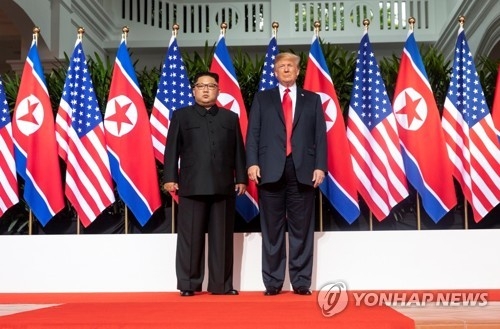
U.S. President Donald Trump (R) poses with North Korean leader Kim Jong-un at the Capella Hotel in Singapore on June 12, 2018, during their summit there, in this photo captured from the Twitter account of White House social media director Dan Scavino. (Yonhap)
Seo Young-ho, head of the research division at KB Securities, said, "There is an assessment that the statement was short on details, but it would be difficult for the two sides to deal with details, given a short preparation period."
Yoo Seung-min, a senior strategist at Samsung Securities, said a face-to-face meeting between the two leaders "satisfied market expectation."
If North Korea and the U.S. comply with pledges in the joint statement, the analysts predicted that lower price-earnings ratios of South Korean stocks would significantly improve.
Geopolitical risks centering on North Korea, along with the opaque management structure of South Korea's family-run business conglomerate, have been cited as one of reasons for the lower value of South Korean stocks compared with foreign peers, a factor billed as the "Korea Discount."
Yoon Hee-do, chief researcher at Korea Investment & Securities, said, "There is a possibility that the Korean Discount would be resolved if geopolitical risks ease."
If so, Yoon expected the KOSPI index to reach 2,900 points by the end of this year.
The KOSPI shed 1.32 points, or 0.05 percent, to finish at 2,468.83 on Tuesday.
(END)
-
 'Queen of Tears' weaves rich tapestry of Korean contemporary art
'Queen of Tears' weaves rich tapestry of Korean contemporary art -
 Ateez member Yunho throws first pitch at MLB match between Dodgers, Mets
Ateez member Yunho throws first pitch at MLB match between Dodgers, Mets -
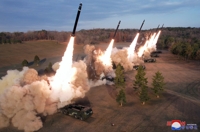 N. Korea says Kim guided simulated nuclear counterattack drills for 1st time
N. Korea says Kim guided simulated nuclear counterattack drills for 1st time -
 N. Korea calls envisioned U.S. aid to Ukraine 'hallucinogen'
N. Korea calls envisioned U.S. aid to Ukraine 'hallucinogen' -
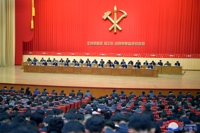 N. Korea calls on party propaganda officials to work harder
N. Korea calls on party propaganda officials to work harder
-
 'Queen of Tears' weaves rich tapestry of Korean contemporary art
'Queen of Tears' weaves rich tapestry of Korean contemporary art -
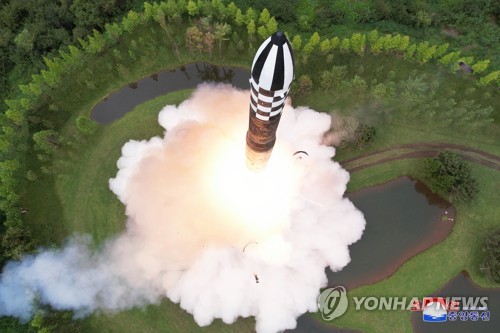 Experts see possibility of N.K. conducting nuclear test before U.S. presidential vote
Experts see possibility of N.K. conducting nuclear test before U.S. presidential vote -
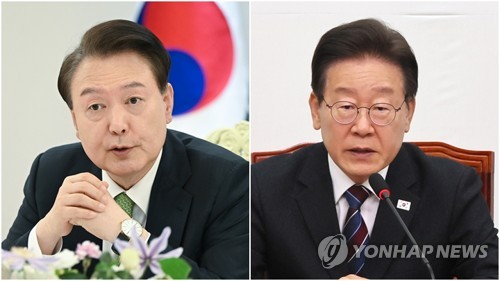 Details of meeting between Yoon, opposition leader undecided: presidential office
Details of meeting between Yoon, opposition leader undecided: presidential office -
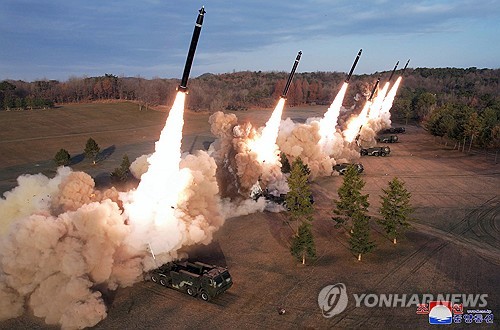 N. Korea says Kim guided simulated nuclear counterattack drills for 1st time
N. Korea says Kim guided simulated nuclear counterattack drills for 1st time -
 Looming weekly closure of major hospitals feared to worsen medical service crisis
Looming weekly closure of major hospitals feared to worsen medical service crisis
-
 S. Korea eliminated in Olympic football qualifiers as poor defense, undisciplined play prove costly
S. Korea eliminated in Olympic football qualifiers as poor defense, undisciplined play prove costly -
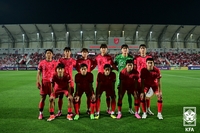 10-man S. Korea lose to Indonesia to miss out on Paris Olympic football qualification
10-man S. Korea lose to Indonesia to miss out on Paris Olympic football qualification -
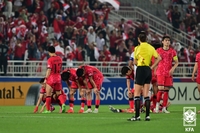 (LEAD) 10-man S. Korea lose to Indonesia to miss out on Paris Olympic football qualification
(LEAD) 10-man S. Korea lose to Indonesia to miss out on Paris Olympic football qualification -
 Indonesia coach left with mixed feelings after eliminating native S. Korea in Olympic football qualifiers
Indonesia coach left with mixed feelings after eliminating native S. Korea in Olympic football qualifiers -
 ADOR CEO calls conflict with Hybe 'worst experience of my life'
ADOR CEO calls conflict with Hybe 'worst experience of my life'
















